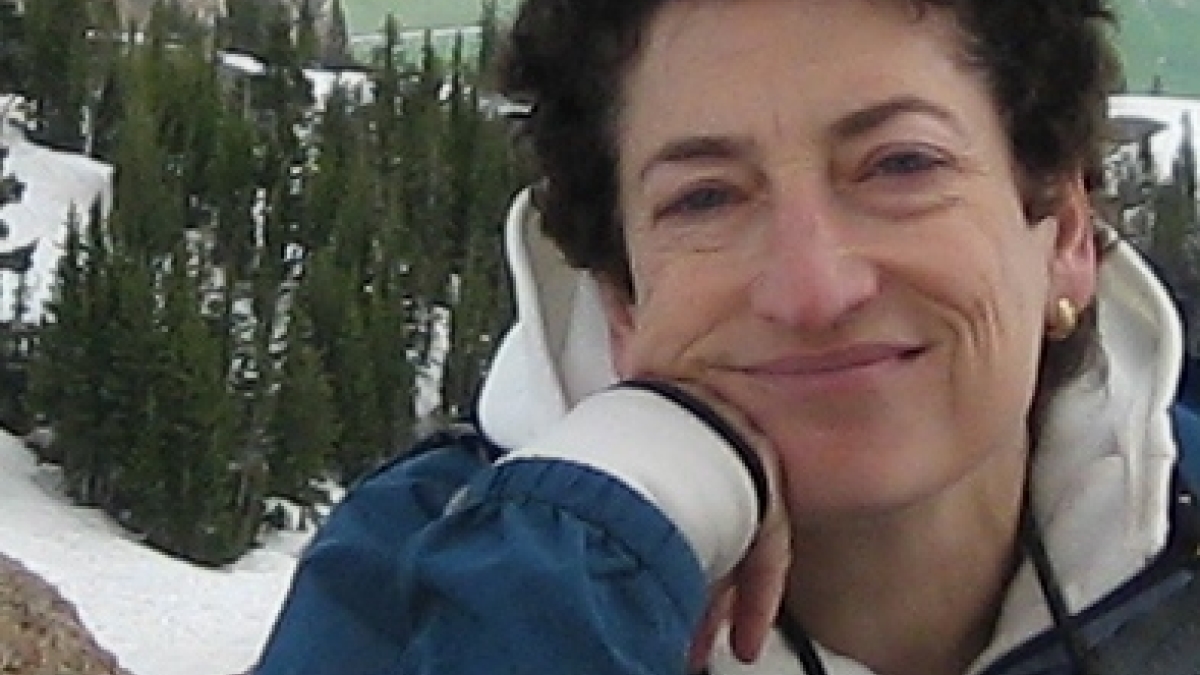Who is responsible for climate change? Science historian to weigh in

Science historian and writer Naomi Oreskes will be visiting Arizona State University on Earth Day to discuss "Who is Responsible for Climate Change?"
A prolific author, Oreskes’ work has appeared in the New York Times, the Washington Post, the Los Angeles Times, Nature and Science, and her essay "The Scientific Consensus on Climate Change" is cited by the Royal Society and was used in Al Gore's film "An Inconvenient Truth."
Her research investigates the role of science in society, and she is currently investigating anthropogenic, or human-caused, climate change.
A professor of history and science studies at the University of California, San Diego and adjunct professor of geosciences at the Scripps Institution of Oceanography, Oreskes will present her lecture from 4 to 5:30 p.m., April 22, at Old Main's Carson Ballroom on the Tempe campus.
She recently discussed her work in this Q&A:
Why are you interested in climate change?
I fell into this topic while working on the history of oceanography. I discovered the early work by men like Roger Revelle and Dave Keeling, and became interested in what I now call the “long consensus on climate change.” I thought that the long-standing nature of scientific concern was something worth understanding. Among other things, it showed that climate change is not just the latest environmental fad, but an issue with a long-standing scientific basis.
What is the global sustainability challenge that concerns you the most, and why?
This is tricky because many sustainability issues – water, food, land, population – are interconnected, but certainly climate change will make dealing with any and all of these issues more difficult than they already are. In some cases, such as marine biodiversity, a good deal of work that has been done in the past may be set back or even undone by climate change. Think of coral reefs, for example, and the Everglades. Back in the 1980s, I recall thinking that climate change did not sound like a worse problem than habitat and biodiversity loss. Now I believe you cannot address the latter without addressing the former.
How do you address the above sustainability challenges?
I’m an academic and a scholar, so I contribute by trying to develop better understanding of these issues. As a historian of science, I try to understand the scientific basis for concern and proposed remedies. As the co-author of “Merchants of Doubt,” I have been interested in why some people and organizations have rejected the scientific evidence of climate change, despite its overwhelming character. I also drive a small car, live close to work, and don’t buy or drink bottled water. What I still need to do is find a way to travel less.
What inspires your commitment to climate change alleviation?
That’s hard to say. I’d say most of my work is inspired by curiosity – the desire to understand how things are and how they got to be that way. History in my view is a powerful tool that enables us to use an understanding of the past to grapple with where we are today – for better and for worse. With a historical understanding, we can have an informed view of what future alternatives might be needed and opened to us. I think history helps one to be both idealistic and realistic at the same time. And that is a powerful combination.
What person or persons have influenced you the most throughout your lifetime?
My recently deceased father Irwin Oreskes inspired my love of learning, books, travel, wine, and the belief that science has the capacity to make the world a better place. And if that capacity lies in front of us, how could we not try to make good use of it?
More recently, I’ve been reading works by Immanuel Wallerstein. He makes the very important point that liberals want to make the world a better place while conservatives are sensitive to the trade-offs involved and to how such efforts in the past have sometimes backfired. So I think one needs to be mindful of the conservative concern, but yet not allow that to become an excuse for inaction, hard-heartedness, or in the case of climate change, outright denial of real problems that are staring us in the face.
Oreskes is currently writing a book about the history of Cold War oceanography called “Science on a Mission: American Oceanography in the Cold War and Beyond.” She has won numerous prizes, including the 2011 Climate Change Communicator of the Year.
The lecture is part of ASU’s Global Institute of Sustainability’s Wrigley Lecture Series. You can RSVP for her lecture here: http://sustainability.asu.edu/events/rsvp/naomi-oreskes.